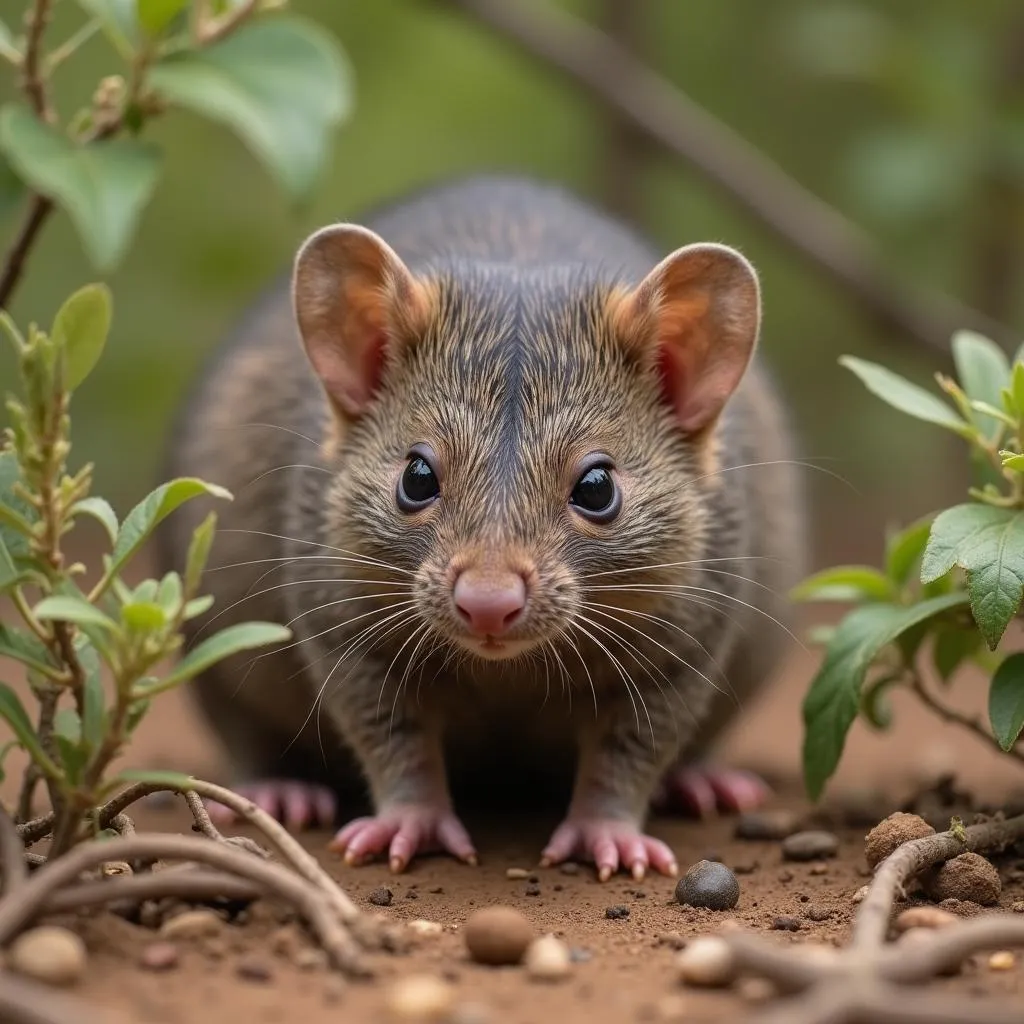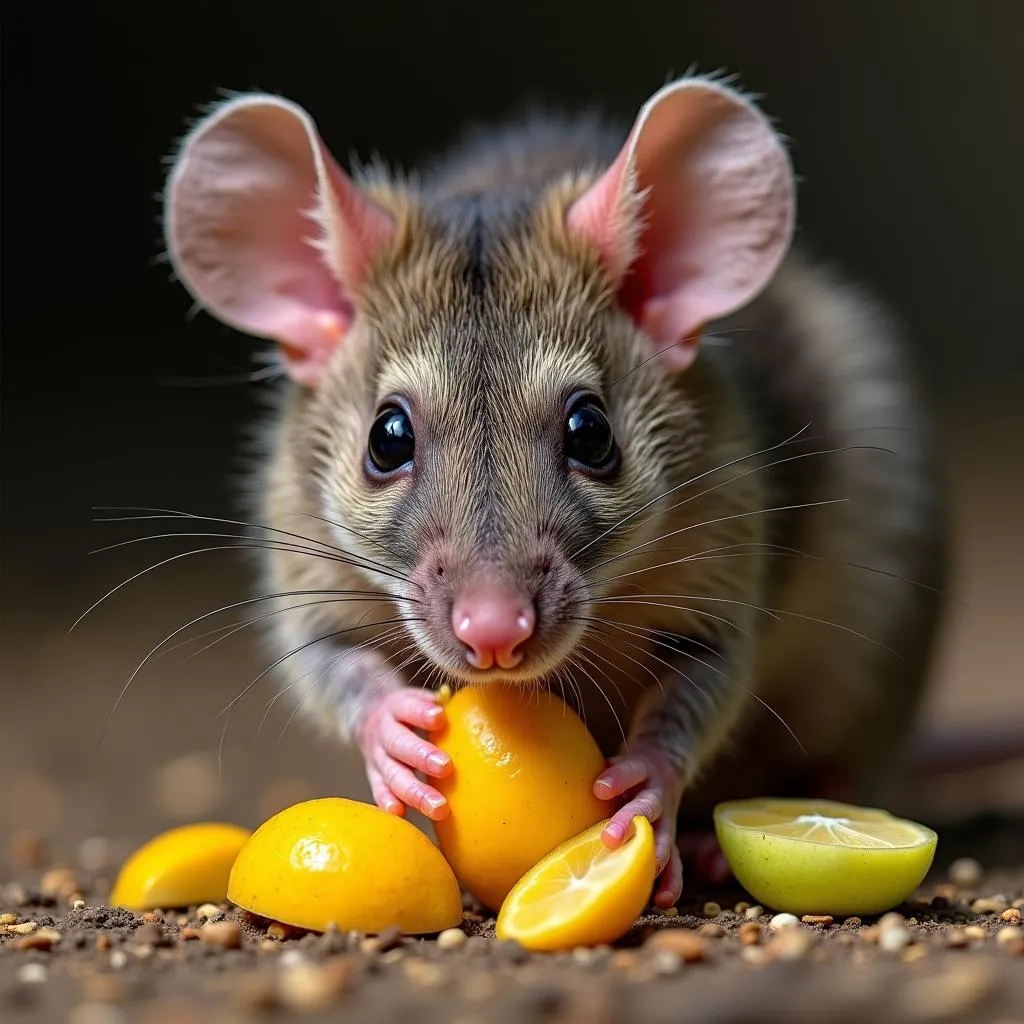The African Bush Rat: An Unexpectedly Fascinating Creature
The African Bush Rat, also known as the giant rat, is a common sight in many parts of Africa. While often considered pests, these rodents are actually quite fascinating creatures, playing a vital role in the African ecosystem. They are intelligent, adaptable, and surprisingly social. This article delves into the world of the African bush rat, exploring its characteristics, behavior, and importance to the environment.
What is an African Bush Rat?
The African bush rat (Cricetomys gambianus) is the largest rodent species in Africa, growing up to 90 centimeters in length and weighing up to 1.5 kilograms. They are characterized by their large, pointed ears, short legs, and a thick, gray-brown fur coat.
The African Bush Rat’s Habitat and Diet
African bush rats are found throughout sub-Saharan Africa, inhabiting a wide range of habitats from forests and grasslands to savannas and agricultural areas. Their diet is primarily herbivorous, consisting of roots, fruits, seeds, and insects.
Adaptability and Intelligence
African bush rats are highly adaptable creatures, thriving in a variety of environments. They are also remarkably intelligent, capable of complex problem-solving and remembering food sources. Their intelligence allows them to navigate their surroundings effectively and find food in challenging conditions.
The African Bush Rat and Its Role in the Ecosystem
African bush rats play a vital role in seed dispersal, helping to regenerate forests and grasslands. Their burrowing activity also contributes to soil aeration and nutrient cycling. However, their consumption of crops can make them a nuisance to farmers.
The African Bush Rat’s Social Behavior
Despite their solitary nature, African bush rats are social animals, communicating through a complex system of vocalizations and scent markings. They live in family groups, with the male being responsible for defending the territory.
The African Bush Rat: A Source of Protein
In some parts of Africa, the African bush rat is considered a delicacy. The meat is often roasted or grilled and is said to have a similar taste to chicken.
The African Bush Rat in Culture
The African bush rat has a significant cultural significance in many parts of Africa. It is featured in folklore and traditional medicine, often symbolizing resourcefulness and resilience.
What Are the Threats to the African Bush Rat?
While the African bush rat is not an endangered species, they face threats from habitat loss, hunting, and pesticide use. Conservation efforts are focused on educating farmers about sustainable practices that minimize conflict with these animals.
FAQ:
Q: Are African bush rats dangerous?
A: While African bush rats can bite if threatened, they are not generally aggressive and pose little threat to humans.
Q: Are African bush rats rodents?
A: Yes, the African bush rat belongs to the rodent family.
Q: How long do African bush rats live?
A: African bush rats can live up to 5 years in the wild.
Q: What is the difference between a giant rat and an African bush rat?
A: Giant rat is a common name used for African bush rats.
Q: What are the benefits of the African bush rat?
A: The African bush rat plays a vital role in seed dispersal, soil aeration, and nutrient cycling.
Q: How can I prevent African bush rats from entering my home?
A: To prevent African bush rats from entering your home, ensure all gaps and openings are sealed, use pest-resistant materials, and store food properly.
Q: Are African bush rats a good source of food?
A: In some parts of Africa, the African bush rat is considered a delicacy, providing a good source of protein.
 African bush rat in its natural habitat
African bush rat in its natural habitat
Conclusion
The African bush rat, despite its often misunderstood reputation, is a fascinating and important creature in the African ecosystem. Its intelligence, adaptability, and role in seed dispersal highlight its ecological significance. Understanding the African bush rat’s role in the environment helps us appreciate its value and the need to protect it from threats.
 African bush rat feeding on fruits
African bush rat feeding on fruits
For more information about the African bush rat and other fascinating African wildlife, explore our website. We offer a variety of resources, including blog posts, videos, and interactive maps.

